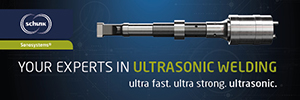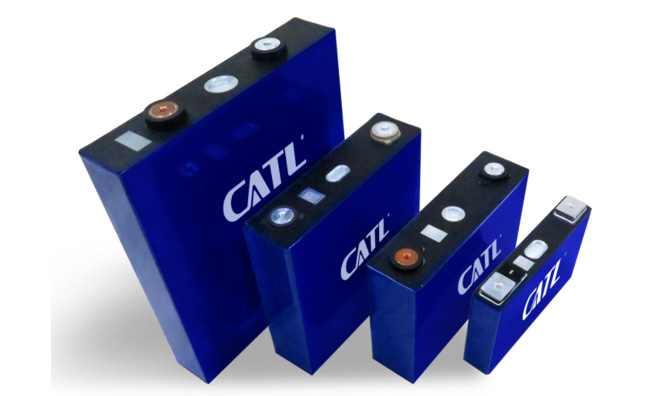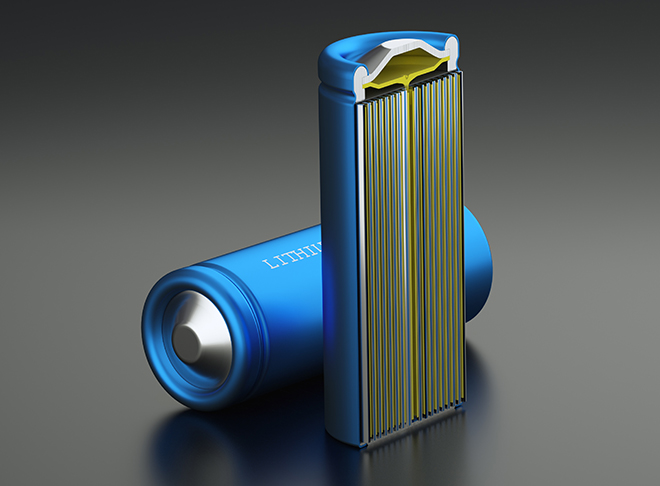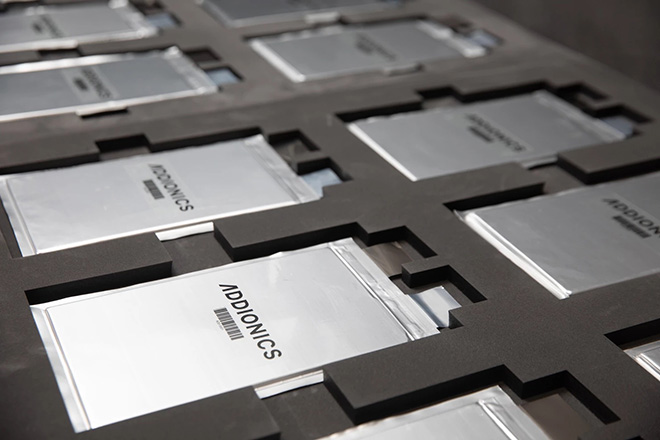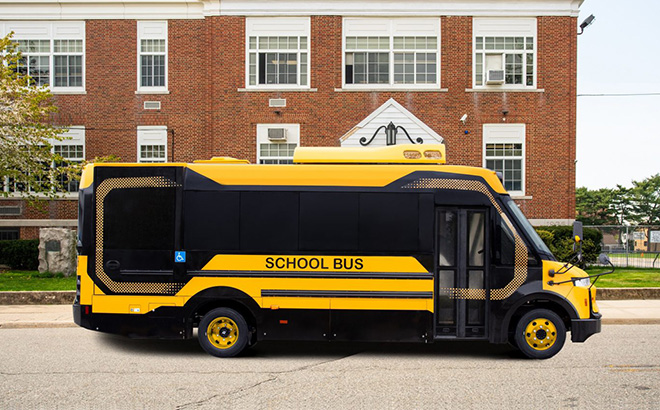GM and battery manufacturer Microvast are collaborating to develop specialized EV battery separator technology, and to build a new separator plant in the US, supported by a $200-million grant from the DOE’s Battery Materials Processing and Battery Manufacturing initiative. Separators are battery components that separate the anode from the cathode, while allowing for ion transfer…. Read more »
Search Results Found For: "Lithium Iron Phosphate"
Bipartisan Infrastructure Law funding awarded for battery processing and battery manufacturing
The DOE has announced that a total of $2.8 billion in funding from the Bipartisan Infrastructure Law has been awarded to 20 companies across 12 states for extracting and processing lithium and graphite, battery manufacturing and the demonstration of new approaches. The DOE says the projects awarded are aimed at materials and building and expanding… Read more »
Bollinger Motors reveals B4 commercial electric truck
Bollinger Motors’ new B4 is a Class 4 all-electric fleet truck that features a cab-forward design. It’s designed to offer maximum cargo volume, accommodate unlimited adaptation, and prioritize safety. “The cab-forward design is a radical change from our previous concepts,” says founder and CEO Robert Bollinger. “And that’s on purpose. We listened to our commercial… Read more »
CATL to supply batteries for Solaris electric buses in Europe
Chinese battery supplier CATL has announced that it will provide lithium iron phosphate batteries for Solaris Bus & Coach electric buses produced for the European market. CATL says the batteries have “exceptionally long battery life and high thermal stability.” The batteries have Cell to Pack (CTP) technology. “By removing the conventional module parts, the innovative… Read more »
Nano One buys North American LFP cell production facility
Battery cathode materials specialist Nano One has announced the acquisition of Johnson Matthey Battery Materials (JMBM), a Canadian company that operates one of the few LFP cathode production facilities in North America. Nano One will acquire all of the outstanding shares of JMBM for a total of $10.25 million Canadian ($8 million US). The deal… Read more »
Are nickel-based batteries on the way out?
Is a new standards war—or rather, a chemistries war—developing? There are several important differences between the NMC and LFP battery chemistries, but the most salient points seem to be that batteries based on NMC (nickel, manganese, cobalt) offer higher energy density, but those based on LFP (lithium iron phosphate) tend to be cheaper. Chinese automakers… Read more »
Benchmark Minerals launches price index for cathode raw materials
Price-reporting and market data company Benchmark Mineral Intelligence has launched an index for tracking the price changes of the raw materials in cathodes. The Lithium-ion Battery Raw Material Price Index displays price changes for blends with both NCM high-nickel and mid-nickel chemistries, and for lithium iron phosphate. It uses IOSCO-accredited lithium, nickel and cobalt prices… Read more »
Soaring raw material prices could reverse the decline in EV battery costs
We EVangelists have gotten used to smugly pointing to the steadily declining costs of batteries (and renewable energy), but thanks to the recent surge in raw material prices, that positive trend could slow, or even go into reverse, according to a recent Reuters report. Russia’s invasion of Ukraine has caused prices of nickel, lithium and… Read more »
Addionics raises $27 million in Series A funding for Smart 3D Electrodes
Battery technology company Addionics has raised $27 million in Series A funding from Deep Insight, Catalyst Fund, Delek Motors, Dr. Boaz Schwartz, Dr. David Deak and others. The funding will be used for developing and commercializing batteries with the company’s Smart 3D Electrodes, hiring additional team members and increasing the company’s activities in the US… Read more »
BYD introduces Type A electric school bus with V2G tech
BYD has introduced a Type A battery-electric school bus that features vehicle-to-grid technology, allowing the vehicle to serve as a power storage resource when it’s not transporting students. Type A school buses are typically used on routes with fewer students, or for transporting students with disabilities. The BYD Type A can seat up to 30,… Read more »



